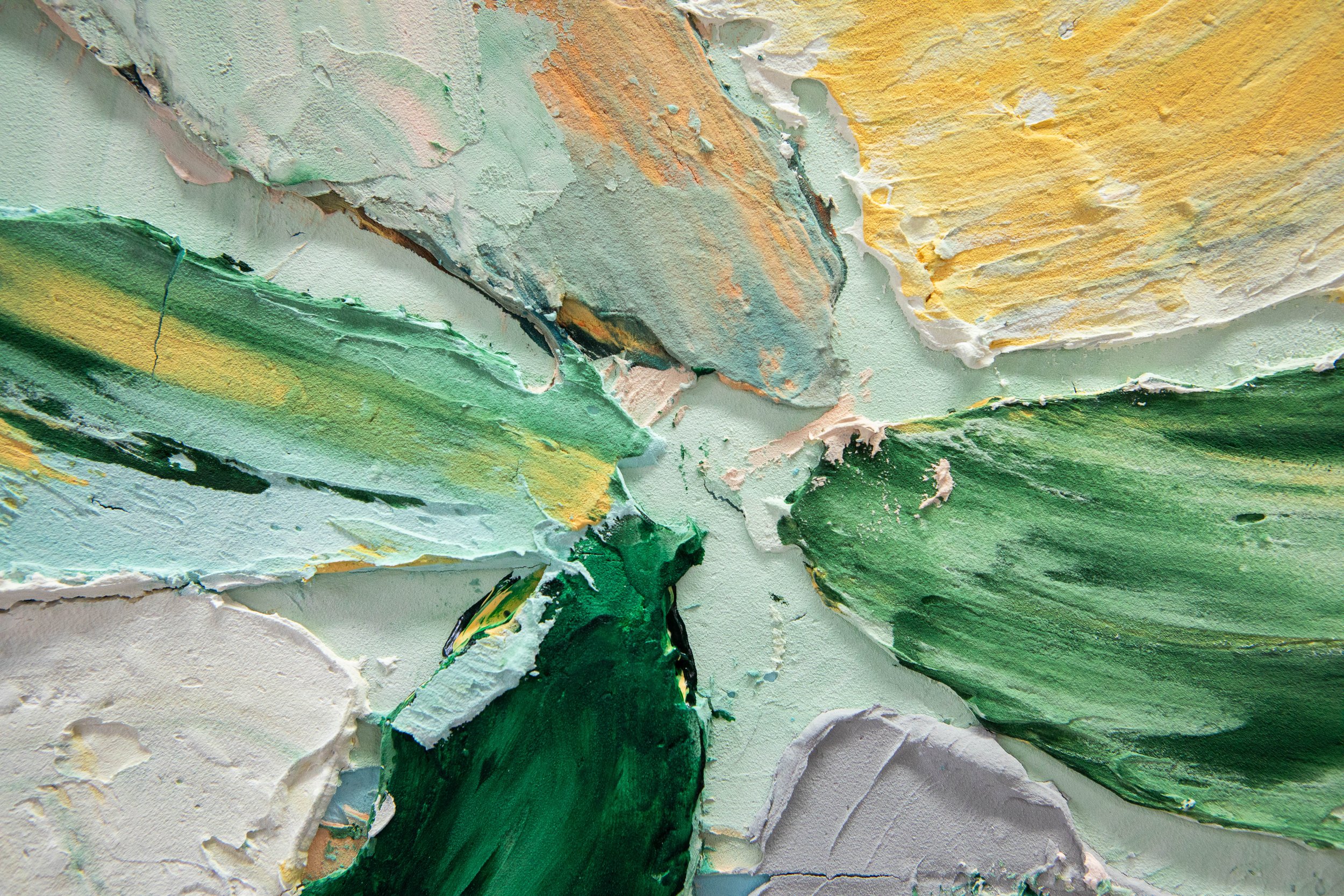August 2023
Manoela Medeiros
Film directed by Alexa Caravia for Fountainhead Arts
Brazilian artist Manoela Medeiros (b. 1991) paints in a manner that transcends the medium, leveraging sculpture, installation, and performance while interacting directly with the exhibition space. Through a multidisciplinary framework, her artistry goes beyond traditional formats—exploring the relationships between time and space and extending conventional mediums by manipulating their usual forms. To achieve this, Medeiros prefers to improvise: with sculptural representations of forests and valleys, of archeological ruins and shaman masks, positioning audiences in relation to the gallery rooms in which they stand, forcing them to pivot such that they can physically experience the environments she creates. Experimenting with a blend of natural and artificial light, Medeiros builds works that investigate the physicality of not only art, but of history and the human body. Time and again, she intervenes directly in the spaces where she shows her work, crafting pieces that emerge from the distinctive characteristics of the surrounding architecture; these interventions are organic and transform the public’s interpretation of indoor worlds—of gallery walls and even the flooring underfoot. Her paintings too come alive in their depiction of the natural realm: of leaves and seeds, brambles, and stones.
Returning to archeology, Medeiros delves into the concept of ruins as indicators of the passage of time. She uncovers hidden aspects of seemingly innocuous objects by scraping surfaces, including the drywall of exhibition spaces, revealing layers of colors and materials that were used, concealed, and eventually forgotten. The artist seeks to revitalize our temporal experience by showcasing these layers, each one revealing subtle signs of the room’s creation—operating within a liminal zone between construction and destruction. In every work, Medeiros highlights how these elements complement one another; this not only engages viewers but invites them to contemplate the longevity of artistic expression. The artist is based in Rio de Janeiro and divides her time between Brazil and France.
Some of her work’s riff on historical paintings—generally those of women painted by men (for instance, Balthus’s The White Skirt (1937), which depicts the artist’s then-wife Antoinette de Watteville, who was just 12 years old when the couple met. Gutman’s version is called The Black Jeans (2021), and it’s something of a parody of the original’s demure posing). Here she may still ask friends to pose, but the approach is one of mimicry; Gutman will begin with a fixed composition and then make adjustments, investigating how one might project the self onto the other. She’s read academic literature about the Wurzburg Witch Trials from the 1600s; more recently, Gutman researched the concept of historical exclusion in a book called Feeling Jewish by Devorah Baum, and she cites Mary Gaitskill, Ross Gay, and Zadie Smith as additional points of reference. “The self is unknowable,” she notes. Yet Gutman finds that dissonance compelling.
Words by Charles Moore






